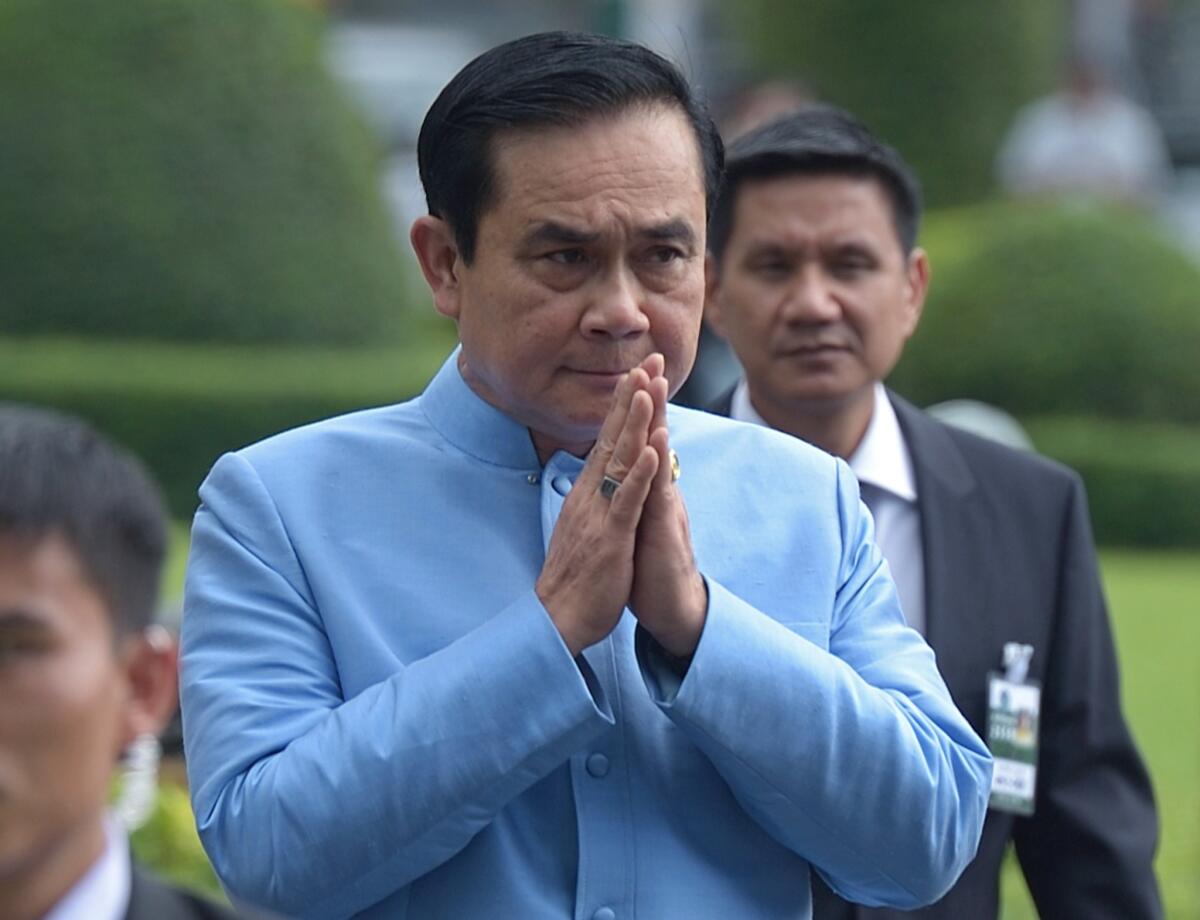Thailand’s military rulers accused of human rights abuses

- Share via
Reporting from Mumbai, India — Thailand’s military rulers detained hundreds of people without charges, tortured some prisoners and systematically stifled dissent since seizing power in a May coup, a leading human rights watchdog reported Thursday.
Amnesty International said that although most prisoners were released within a week, they remain at risk of prosecution in military courts.
The crackdown has created a climate of fear in the Southeast Asian kingdom that shows no signs of easing as the Thai army has said it would keep power at least until the end of next year, the group said.
“The Thai authorities should end this disturbing pattern of repression, end human rights violations, respect its international human rights obligations and allow open debate and discussion -- all of which are vital to the country’s future,” Richard Bennett, the group’s Asia-Pacific director, said in a statement.
The 68-page report offered one of the more detailed pictures of the political situation in Thailand to emerge since the military deposed an elected government and parliament, suspended the constitution and formed a rubber-stamp legislative assembly made up primarily of ex-members of the security services.
Gen. Prayuth Chan-ocha, the army’s commander-in-chief, who wields near-absolute power, ordered at least 571 people arrested in the days following the May 20 coup, the report found. Nearly 400 were affiliated with the political party of ousted Prime Minister Yingluck Shinawatra, but 141 were academics, writers, journalists and activists, the report said, while another 78 people were arrested at peaceful demonstrations.
The junta has also charged civilians with breaking military laws, the group said, adding that at least 60 people face imminent trials before military courts where they would have no right to appeal.
The army has also sharply restricted free speech by blocking websites, establishing censorship panels to monitor media reports and threatening imprisonment for anyone posting information thought to be critical of the military online.
Gatherings of more than five people are banned, and Bennett said the junta has cracked down “on the smallest form of dissent” – including eating sandwiches in public, a form of silent protest against the military that activists organized on social media.
The report details the case of one political activist, Kritsuda Khunasen, who accused soldiers of beating her, blindfolding her for a week and suffocating her with a plastic bag during her detention beginning in late May.
When activists raised questions about her whereabouts, authorities announced that she was being held in order to “adjust [her] understanding” and later aired footage of her saying she was being well treated – a statement that the activist, who was later released, said was coerced.
For more news from South Asia, follow @SBengali on Twitter
More to Read
Sign up for Essential California
The most important California stories and recommendations in your inbox every morning.
You may occasionally receive promotional content from the Los Angeles Times.














